Leaders who use AI daily scale it 3x faster than those who delegate
McKinsey just confirmed the gap between AI adoption and AI transformation. It’s not budget.
Hey Adopter,
McKinsey just confirmed the gap between AI adoption and AI transformation. Leaders who personally use AI tools are three times more likely to scale them across their organizations than leaders who merely sponsor AI initiatives.
88% of companies now use AI in at least one function. 67% remain stuck in pilot mode. The difference is not budget, platform choice, or vendor selection. It is whether the executive asking for AI transformation has rebuilt their own workflow first.
High performers use AI themselves. Everyone else delegates and waits.
Personal use solves the credibility problem
When you rebuild one of your own workflows with AI, you stop being the executive who mandates adoption. You become the executive who demonstrates it works. Your team stops viewing AI as a directive from above and starts viewing it as a tool with proof.
Marc Benioff at Salesforce retrained himself to use AI for strategic planning. United Airlines executives rebuilt crew scheduling, cutting reassignment time from 45 minutes to 90 seconds. These are not feel-good stories about leadership empathy. They are examples of leaders who found the friction points before asking their teams to solve them.
Personal use is reconnaissance.
You learn where the data gaps live, where integrations break, and where your assumptions about automation are wrong. Then you fix those problems for your team instead of asking them to fix problems you do not understand.
Which raises the question: if the playbook is this clear, why are two-thirds of organizations still stuck in pilots?
The gap is not technical, it is organizational
62% of organizations are experimenting with AI agents. Only 23% are scaling them. Most are running one or two use cases in IT service desks and knowledge management. The bottleneck is not capability. It is integration.
High performers are three times more likely to aim for transformative change instead of incremental improvements. That means killing old workflows, rewriting approval chains, and redefining roles.
Companies that layer AI onto broken processes get friction. Companies that redesign processes with AI as the foundation get leverage.
The EBIT data confirms this. 64% of organizations report that AI enables innovation, but only 39% see enterprise-level EBIT impact. Most who do see gains report less than 5% of EBIT attributable to AI. The pattern is consistent: companies chasing cost savings get marginal wins. Companies linking AI to growth and new business models see step-change returns.
Domino’s improved order readiness prediction accuracy from 75% to 95%. United rebuilt crew scheduling instead of optimizing it. These are not efficiency projects. They are transformation projects that required leadership commitment to redesign work.
But there is a cost to transformation that most organizations are not managing.
Inaccuracy is the risk nobody prioritized
51% of organizations have already experienced negative consequences from AI. The top cause is inaccuracy, reported by nearly one-third. Yet most companies are solving for explainability when they should be solving for correctness first.
The IRS fraud detection system historically had an 81% false positive rate, delaying $20 billion in legitimate refunds. Zillow’s house-pricing model failed publicly. Amazon scrapped a biased recruiting tool. These are documented failures from inaccuracy, not from lack of transparency.
Accuracy failures create financial damage. Explainability failures create compliance paperwork. Organizations are misaligning their risk priorities with the risks they are actually experiencing.
Personal use exposes accuracy problems early. Delegation scales failures first, discovers them later.
When you test AI on your own workflows, you catch the failures before scaling them across 500 people. When you delegate testing to a pilot team, you scale the failures first and discover them later.
Start with one workflow tomorrow
Pick one task you do weekly. Budget review, status reporting, research synthesis, meeting prep. Rebuild it with AI. Measure the time saved and the quality change. Document what broke and what worked.
Then share the before and after with your team. Use the same workflow redesign as a template for your direct reports. Do not ask them to adopt AI. Show them how you adopted it and what you gained.
AI adoption is mainstream. AI transformation is not. The unlock is not budget, platform choice, or vendor selection. The unlock is an executive practice. Leaders who use AI daily create organizations that scale it. Leaders who delegate create organizations that stall.
Your next move is not a strategy deck. It is a rebuilt workflow.
Adapt & Create,
Kamil



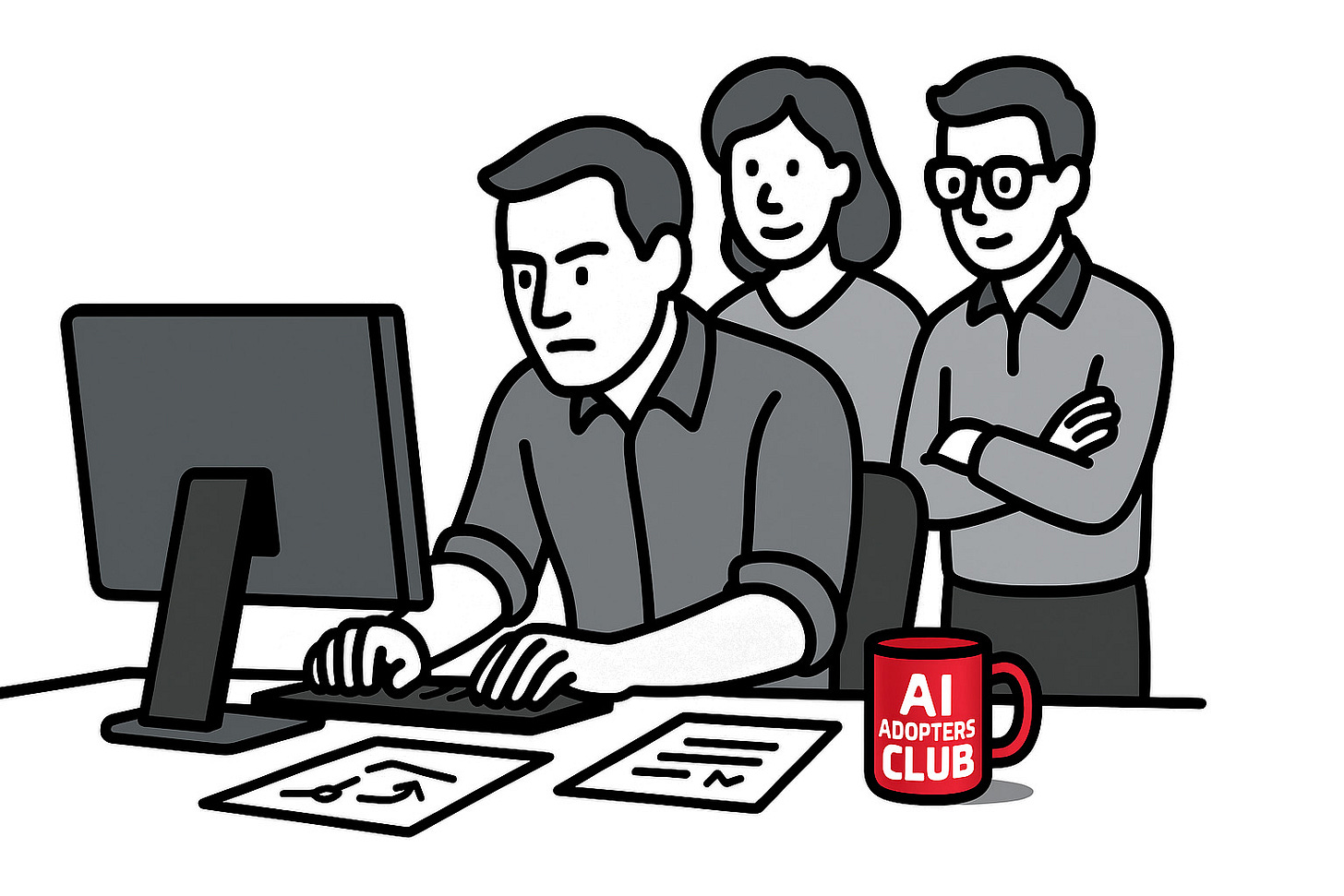
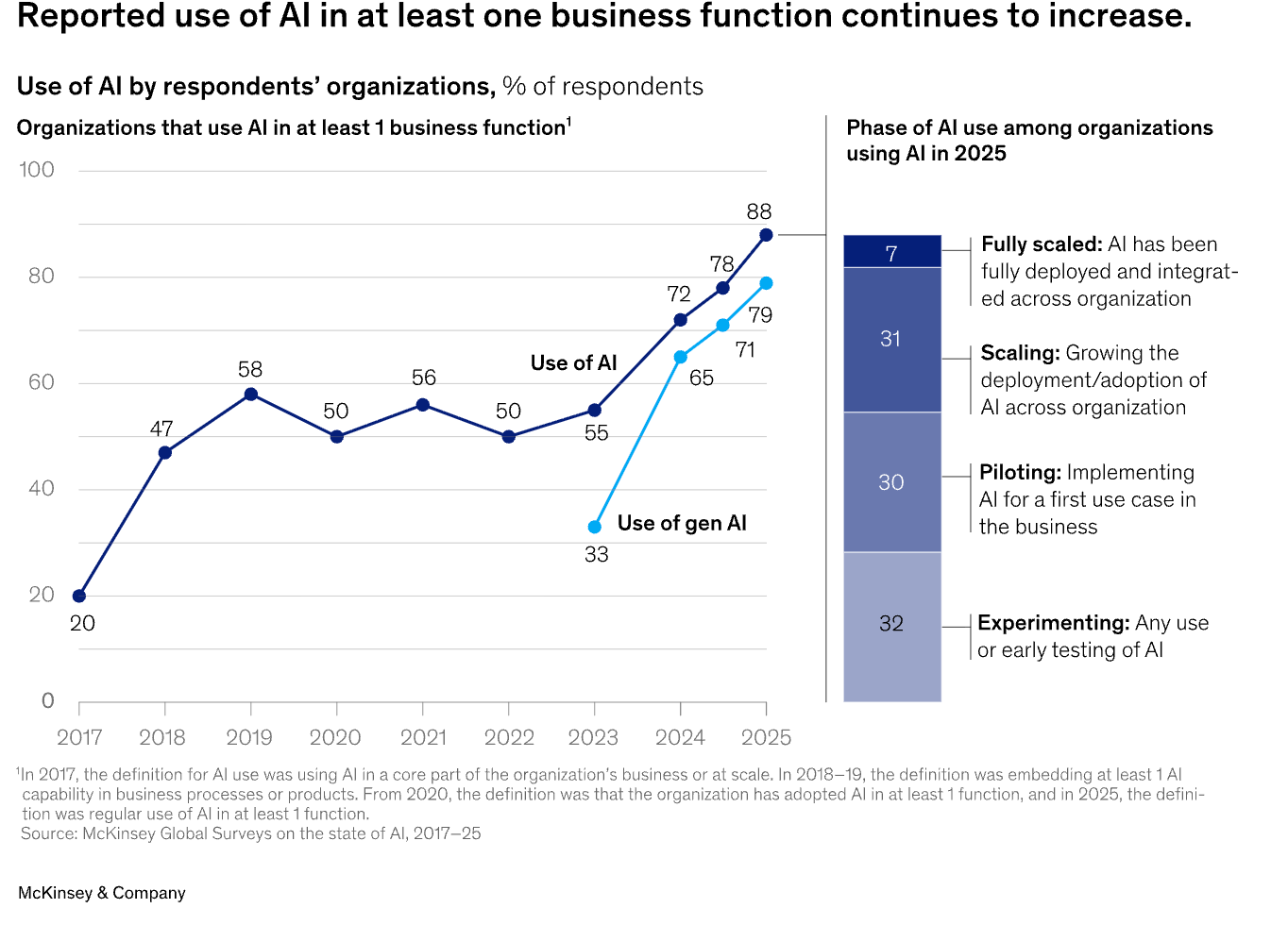
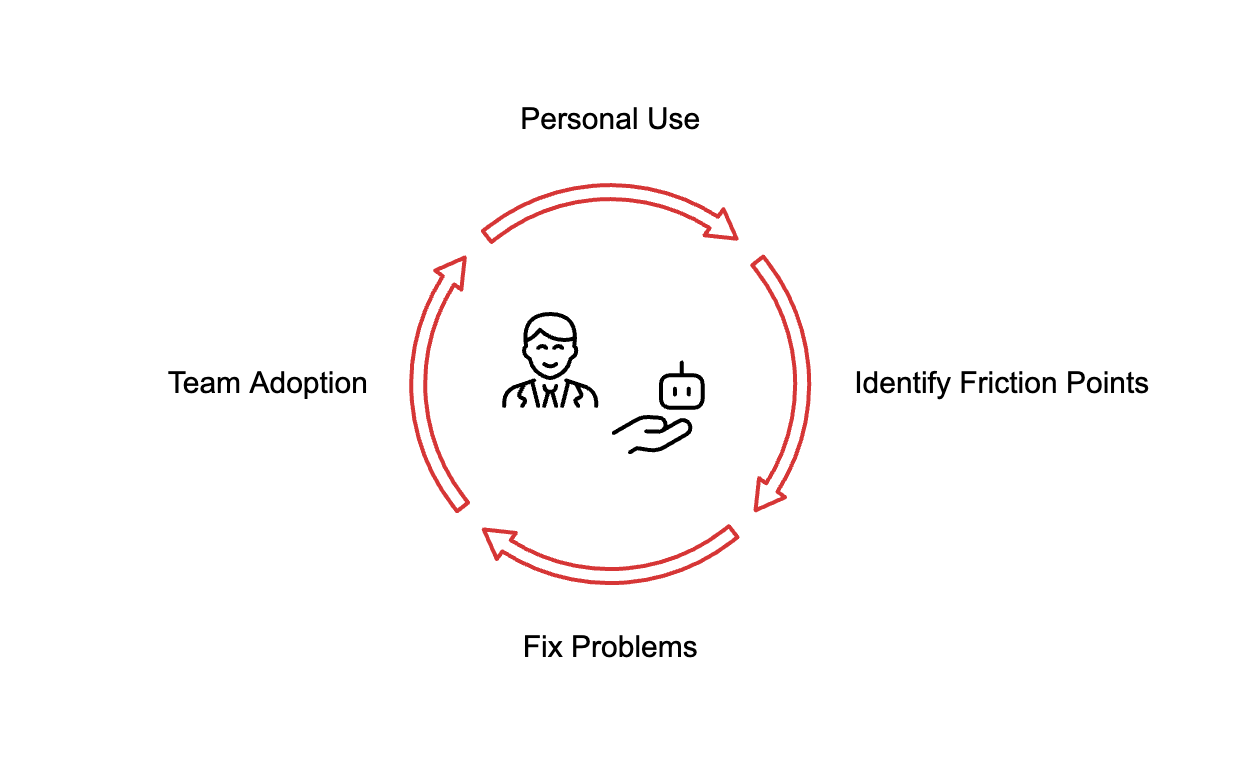
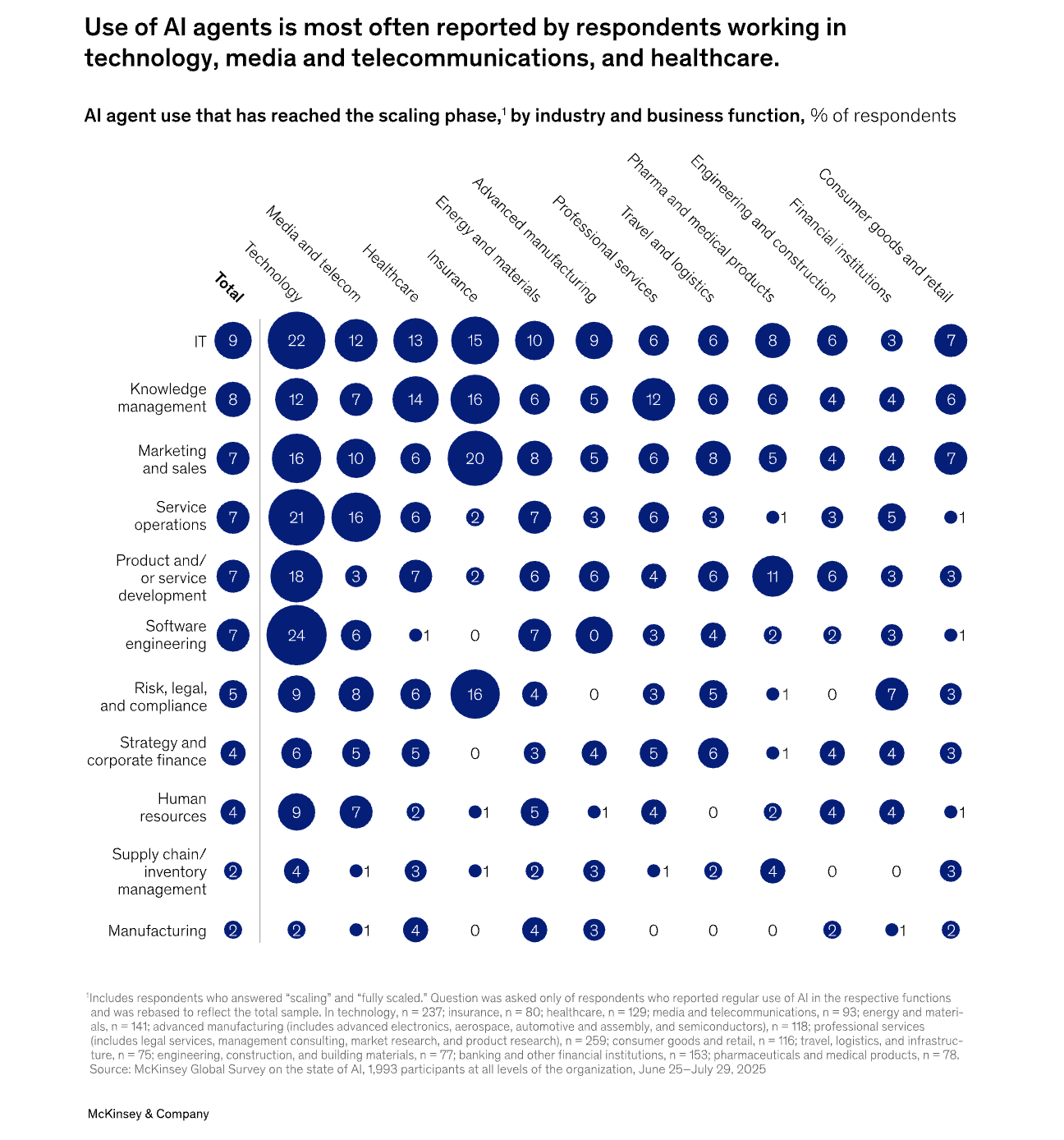

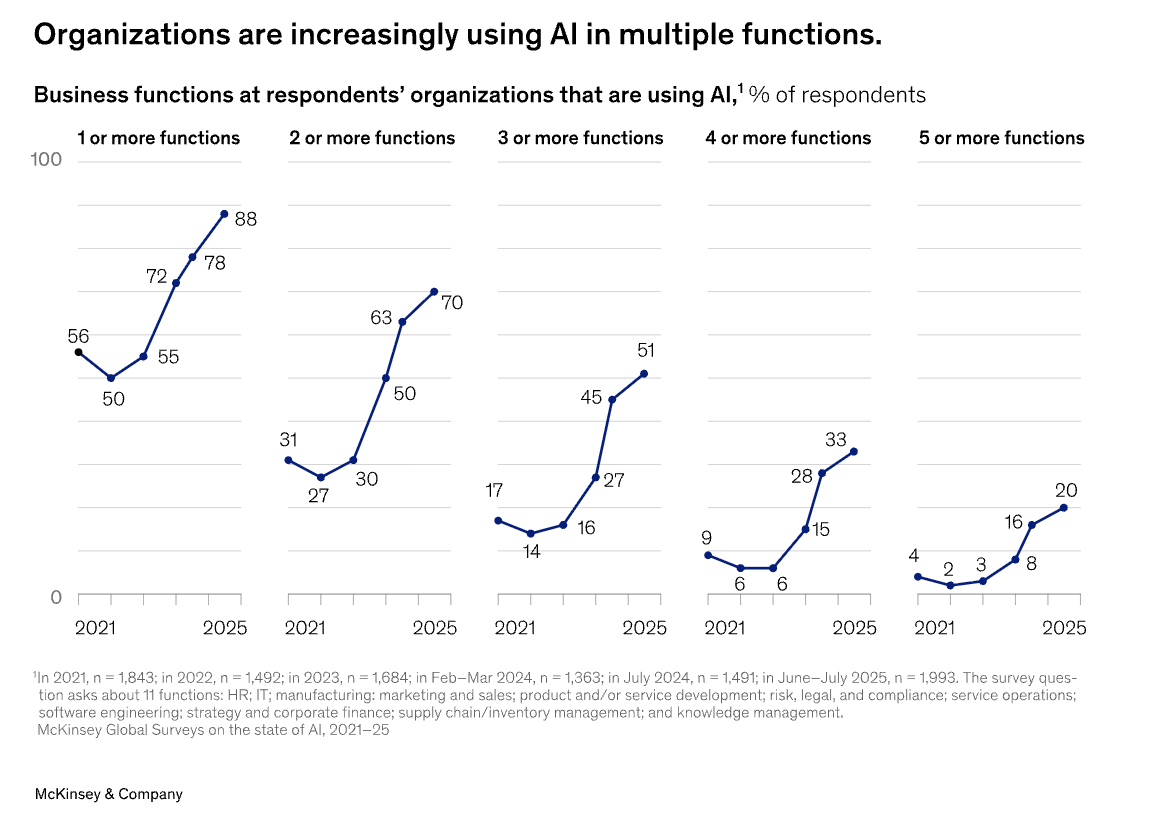
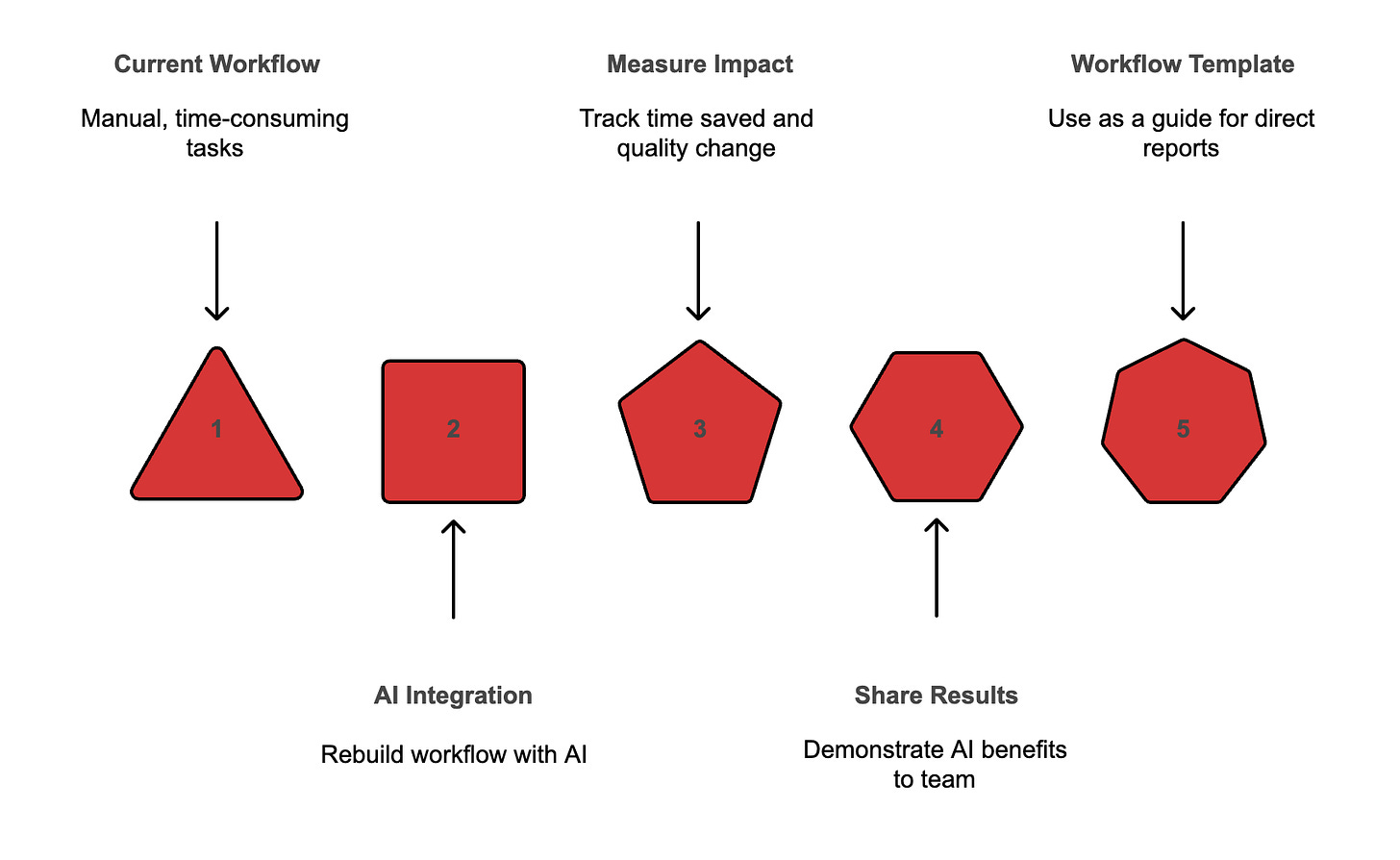
I’m currently working on a similar project and found the article and data very relatable. It seems that AI won’t take over everything, as the main challenges remain the resistance to adopting new approaches, behavior change, and other human reactions along the way. A tool is as good as the human behind it.
So true. Gone are the days of “We’ll come up with the idea and someone else will figure it out.” We can, and should, start prototyping a solution as a means to getting the ultimate result. Less talking, more results.